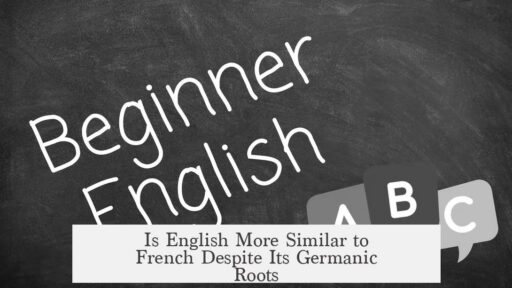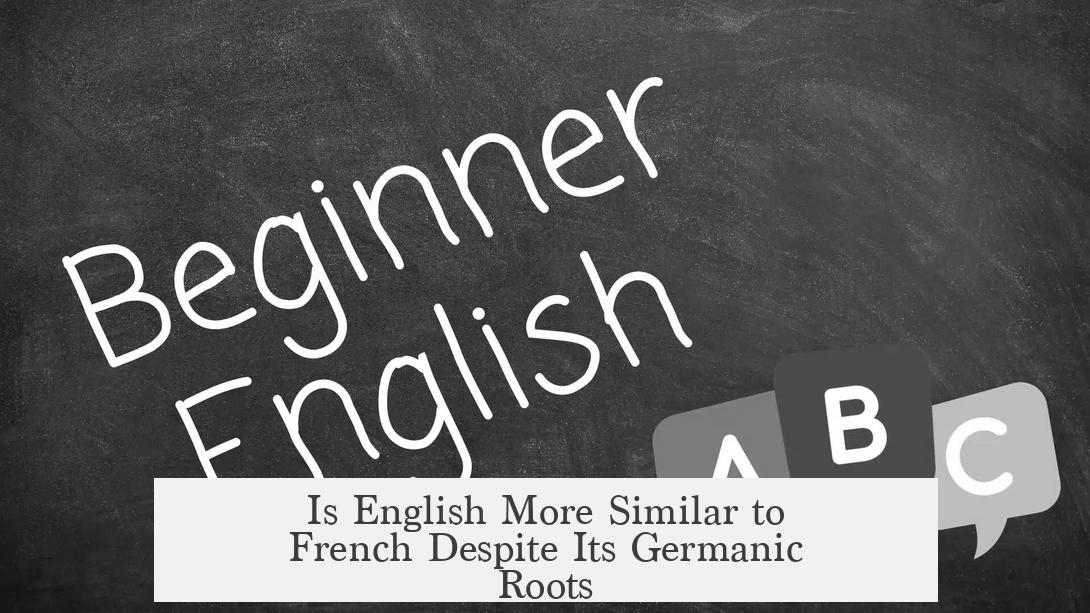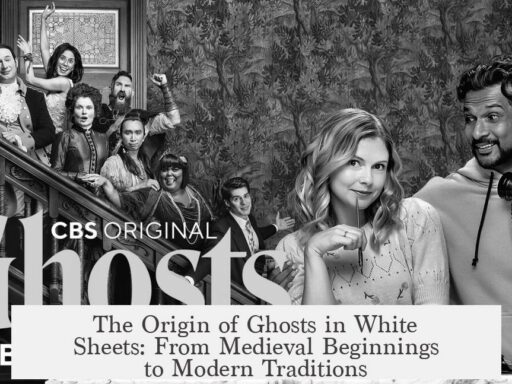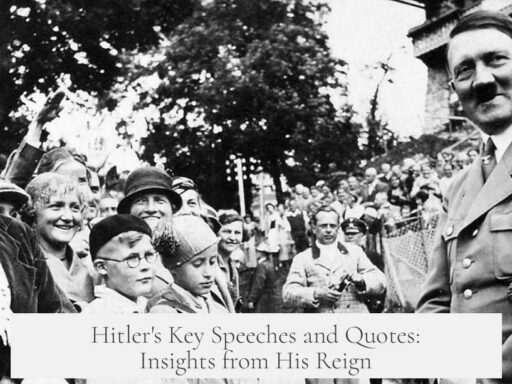English remains a Germanic language despite significant French influence, especially in vocabulary; its grammar and core structure are rooted firmly in Germanic origins.
English vocabulary reflects a unique blend. The foundation of English comes from Old English, a Germanic tongue. About 60% of everyday words trace back to Old English. These include basic terms like “field,” “moon,” “sun,” “stone,” and “water,” which sound closer to German than French. However, English has absorbed a vast number of French and Latin loanwords, mainly due to historical events like the Norman Conquest in 1066. For roughly 400 years, the British upper class spoke French, enriching English vocabulary with “fancy” French terms.
Grammar and sentence structure further highlight English’s Germanic roots. The syntax, or word order, largely follows Germanic patterns typical of Old English. Unlike French, German exhibits features like separable verbs and shifting word order in subordinate clauses, aspects retained more in English than French. Some adjustments were made over time to simplify English grammar for wider communication during the British Empire, but the core remains Germanic.
French influence is pronounced in vocabulary rather than grammar. English does not adopt French-style verb positioning or extensive word order changes. While French sentence structure superficially resembles English more than German, English grammar complexity sits closer to German patterns.
Historically, English’s evolution shows a linguistic melting pot. The ruling class’s use of French infused English vocabulary with many French words. Meanwhile, the common people continued speaking a Germanic-based language that evolved into modern English. Despite appearances, English does not classify as a Romance language like French or Spanish but as a Germanic language due to its grammatical framework.
| Aspect | Germanic Influence | French Influence |
|---|---|---|
| Vocabulary | Core words, everyday terms | Extensive loanwords, sophisticated terms |
| Grammar | Syntax, word order, separable verbs | Limited; mainly vocabulary, minor grammar |
| Historical Usage | Language of common people | Language of ruling class for 400 years |
- English vocabulary shows strong French influence but keeps a Germanic core.
- Grammar and syntax remain largely Germanic, with limited French impact.
- Historical social layers explain the mixed vocabulary but firm grammatical Germanic roots.
- English is classified as a Germanic language with heavy French lexical influence.
Is English More Similar to French Because of Its Influence Even if It’s a Germanic Language?

English is primarily a Germanic language but carries a heavy French vocabulary influence, making its words more similar to French while retaining Germanic grammar and sentence structure. This intriguing mix results from centuries of history, social dynamics, and linguistic evolution. But why is English often seen as “fancy French” words dropped into “Germanic” grammar? Let’s unpack this linguistic cocktail with some humor and clarity.
First things first: English comes equipped with German roots. You don’t have to be a linguist to notice that some words like field, moon, water, or stone sound familiar if you know German. Many archaic English words still closely resemble their German siblings. In fact, the foundational grammar, the skeleton that holds the language together, is essentially Germanic. But then there’s this grand French buffet of vocabulary layered on top, thanks to more than 400 years when French was the language of the English upper class and ruling elite.
The French Vocabulary Buffet
Imagine English as a delicious German sausage dressed in a French sauce. The ruling classes in England after the Norman Conquest (1066) spoke French. This led to French vocabulary flooding everyday English. Words like government, justice, royal, and many others entered English because French was considered the language of power, prestige, and academic discourse.
Interestingly, although modern English uses more French (and Latin-based) words, the underlying grammatical rules didn’t follow. People found French words “fancier,” so they started sprinkling them into speech, but they kept building sentences with Germanic grammar. It’s like learning gourmet cooking techniques but still using grandma’s secret recipe as your base.
Some estimates put French-derived vocabulary as a large chunk of English, yet studies also show around 60% of actual word usage by speakers comes from Old English, which is Germanic. So, while you might notice “government” or “debate,” most everyday words like house, eat, sing, and run cling tightly to Germanic roots.
Grammar: A Strong German Backbone
Grammar and syntax—that is, sentence structure and word order—tell a different story. English loyalists proudly wave the German flag here. Unlike French, which has a relatively fixed phrase order and lacks complicated verb systems like separable verbs, English shows clear Germanic DNA.
English syntax reflects German in subtle but important ways. For example, the placement of verbs and objects often follows Germanic patterns. English also resisted adopting many French grammatical quirks because Germanic grammar was more ingrained and familiar to the common people. If you’ve ever wrestled with German grammar, you’ll appreciate that English simplified some of these complexities, making it easier for people across the British Empire to learn.
But Wait, Is English a Romance Language?
Despite this huge splash of French vocabulary, English isn’t classified as a Romance language (like French, Spanish, or Italian) because Romance languages share a common grammar derived from Latin. English grammar remains fundamentally Germanic.
This distinction matters. Vocabulary can be borrowed freely across languages. Grammar changes more slowly and often defines language families. So, English is more like a Germanic language wearing a posh French costume than a Romance language masquerading as Germanic.
Historical Nuggets That Shape This Linguistic Mashup

For around 400 years, French was the language of England’s ruling class. English commoners kept speaking their Germanic tongue underneath. Over time, the two mingled, but grammar stayed Germanic, while many French words entered everyday speech.
Think of English as a grand melting pot, cooked by centuries of invasion, colonization, and cultural mixing. Even before French dominance post-1066, English absorbed words from Norse and Latin. So Germanic roots aren’t just a footnote; they’re the blueprint.
And here’s a fun fact: someone half German and half English notices the similarities in grammar firsthand, saying English grammar is closer to German’s than French’s. That personal perspective confirms what linguistic data shows.
So, Is English Closer to French or German?
If you pick any random English word, chances are it’s more French in sound or origin—but the way you put the words together aligns strongly with German. Why? Because English speakers adopted the elite vocabulary but stuck with the original grammar they knew.
The result is a language that sounds like a cocktail party between German efficiency and French flair. You get the best of both worlds: a flexible Germanic grammatical structure infused with the elegance of French vocabulary.
Practical Takeaways for Language Lovers
- If you’re learning English, know that understanding Germanic grammar basics helps. Word order and sentence structure owe more to German than French.
- If you enjoy vocabulary development, be ready to meet a buffet of French (and Latin) loanwords peppered throughout.
- Let this knowledge guide how you appreciate English literature—where witty Germanic-style sentence construction meets lush French-influenced vocabulary.
- See English as an evolving language, a linguistic chameleon shaped by history, power, and culture.
Final Thoughts
English wears a Germanic skeleton dressed up in French vocabulary clothes. It’s not purely one or the other. Instead, it’s a vivid example of how languages adapt and merge over time due to social factors such as conquest and class. The French ruling class’s 400-year reign left an unmistakable mark, enriching English vocabulary, but the language’s grammatical heart beats Germanic.
So next time you marvel at English, remember: it’s a Germanic language rocking a French accent at a global party. Isn’t that quite charming?
1. Is English vocabulary more similar to French or German?
English has many French loanwords, but its core vocabulary and grammar are Germanic. While French words are common, everyday English words mostly come from Old English, which is Germanic.
2. Does English grammar resemble French or German more?
English grammar is closer to German. Sentence structure and word order follow Germanic patterns, even though English borrowed some vocabulary from French.
3. Why does English have so many French words if it is a Germanic language?
French was spoken by the ruling class in Britain for about 400 years after 1066. This led to many French words entering English, especially in formal contexts.
4. Does English sentence structure resemble French or German?
English syntax is mostly Germanic. German changes word order more extensively, but English retains more of the Germanic ordering than French.
5. Is English considered a Latin or Germanic language?
English is classified as a Germanic language due to its grammar and core vocabulary, despite having a heavy overlay of French and Latin words.




